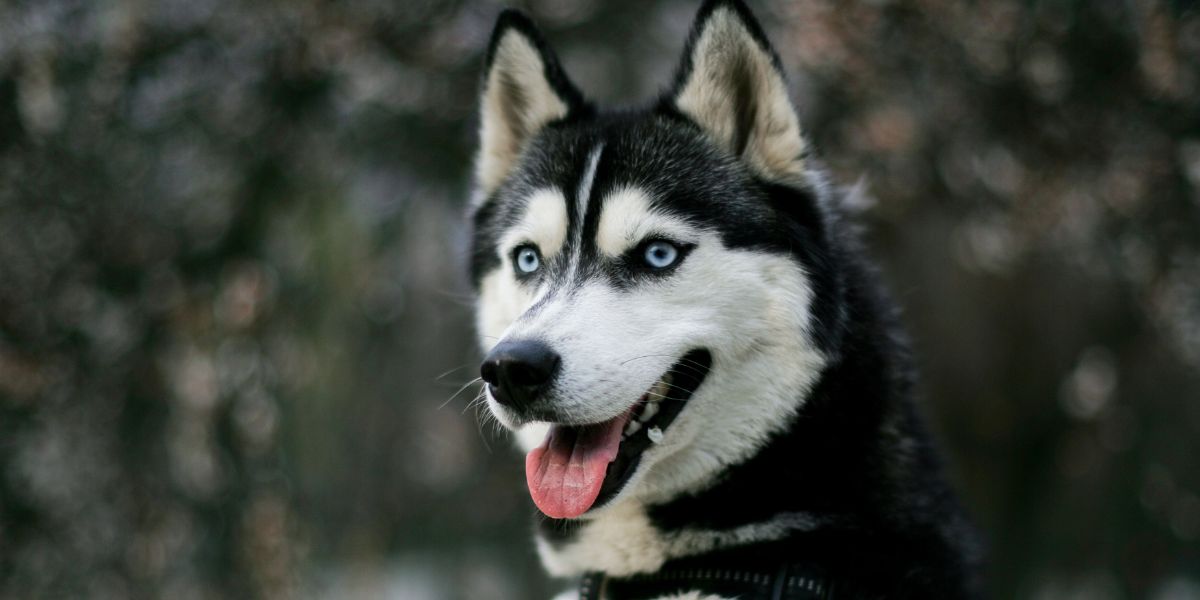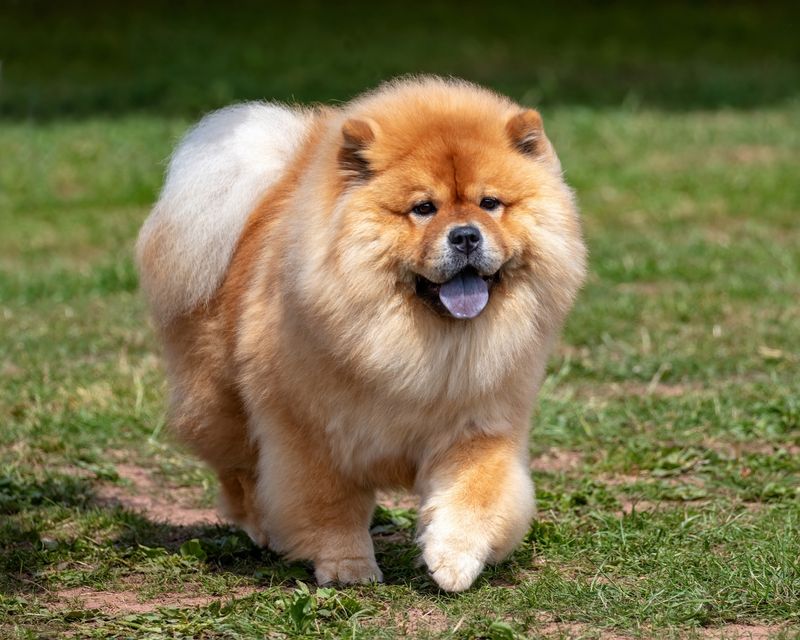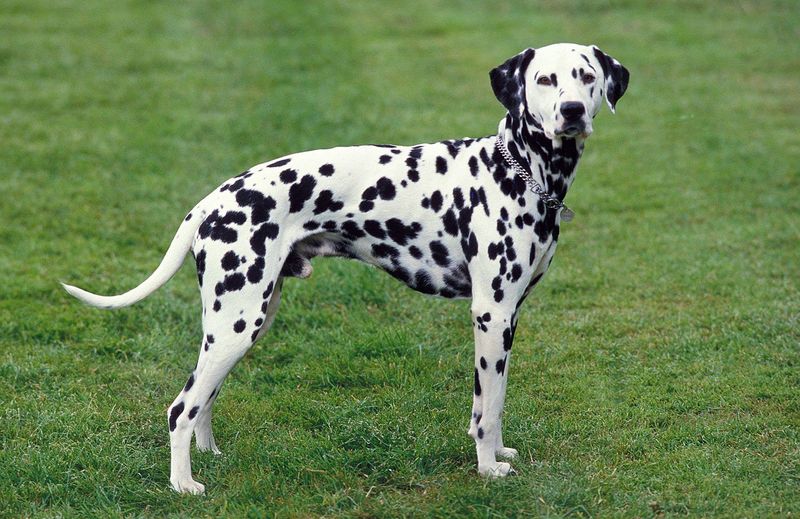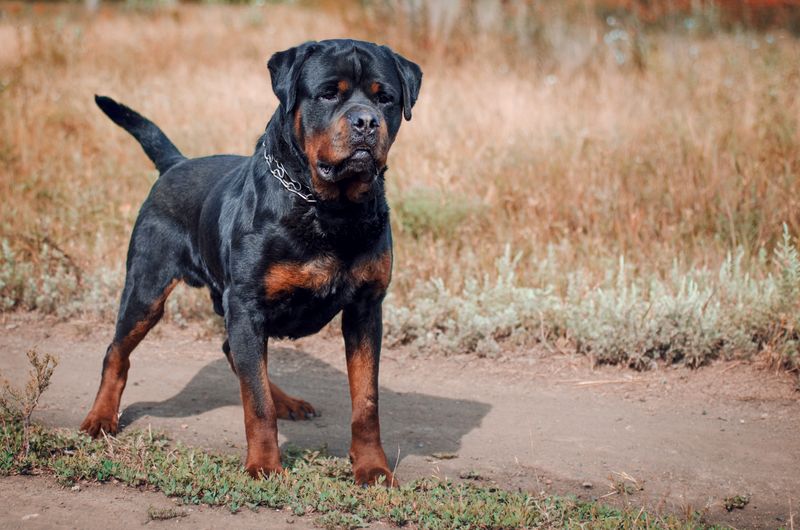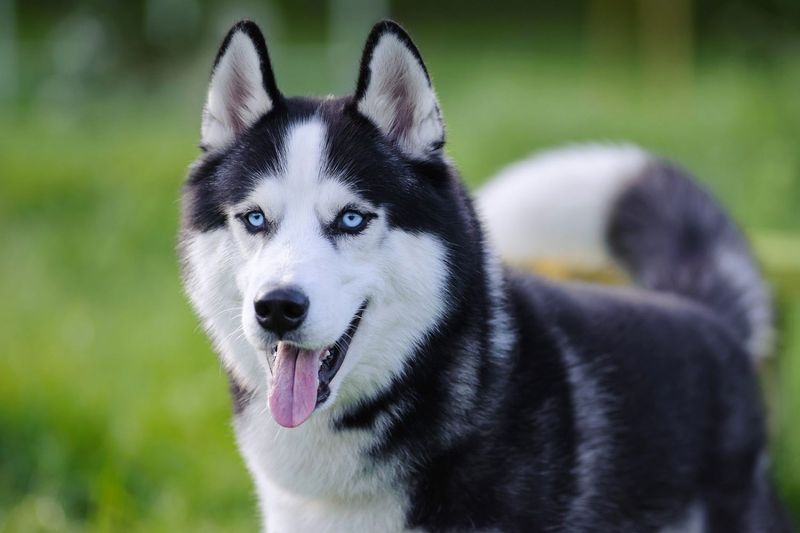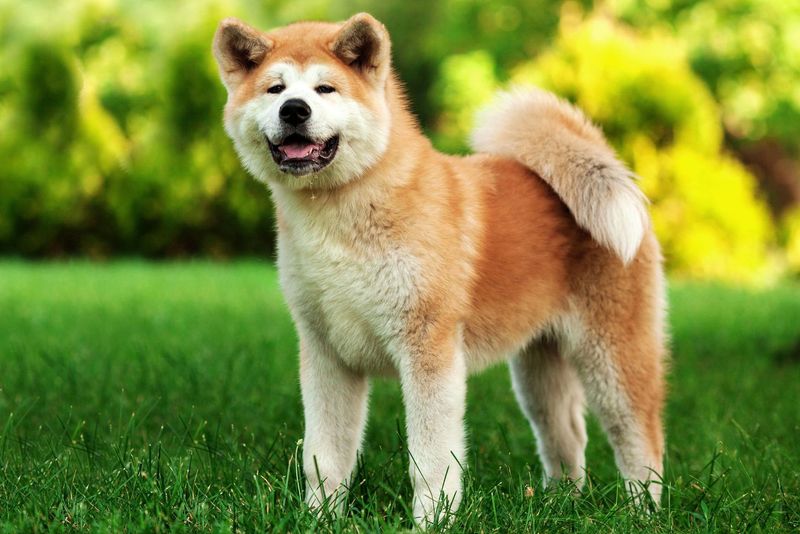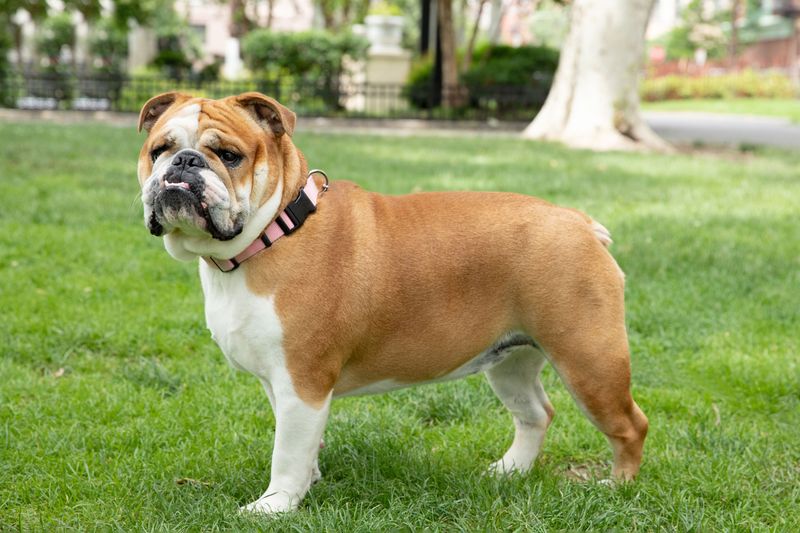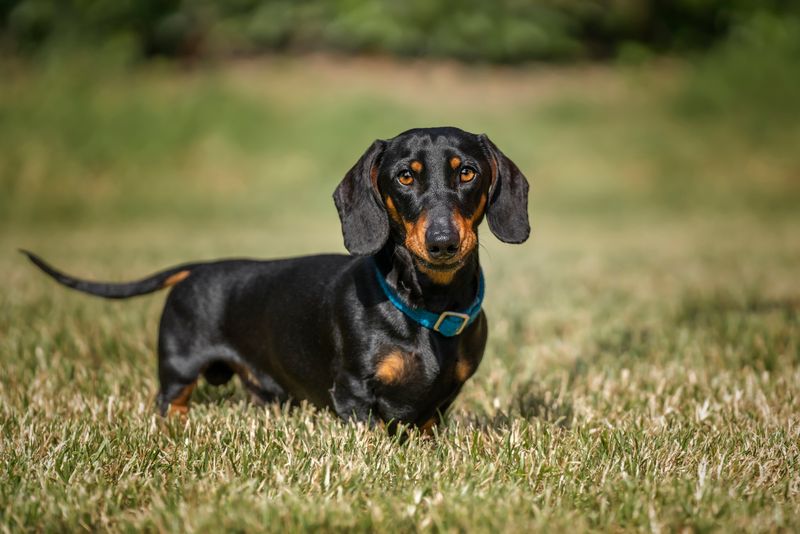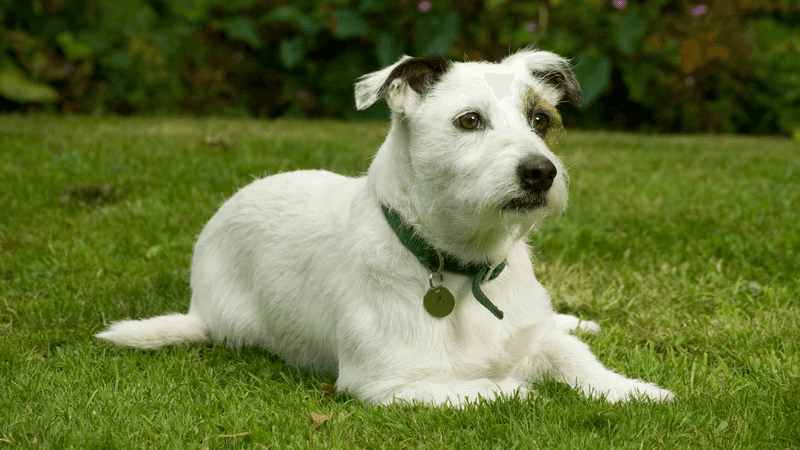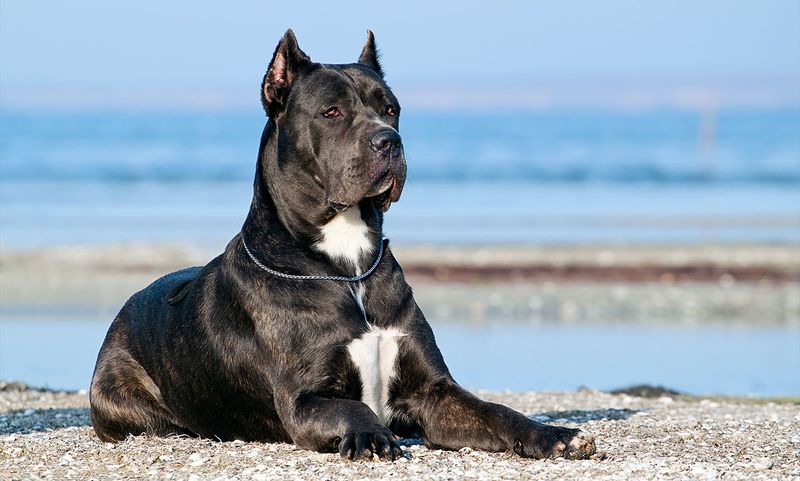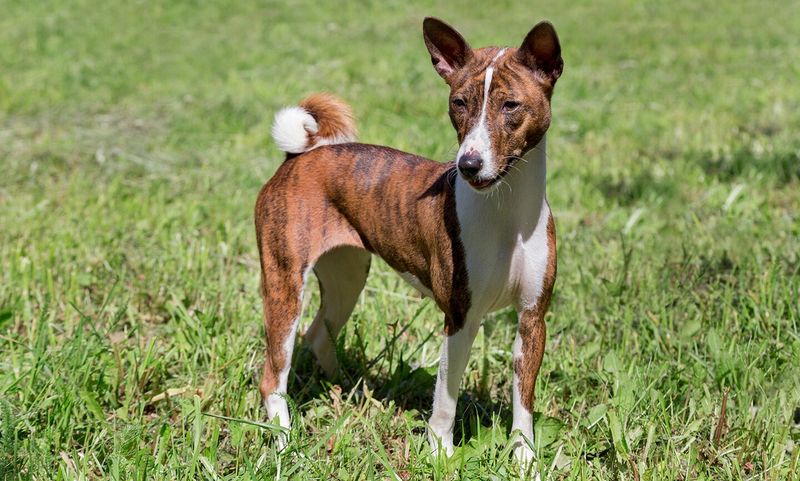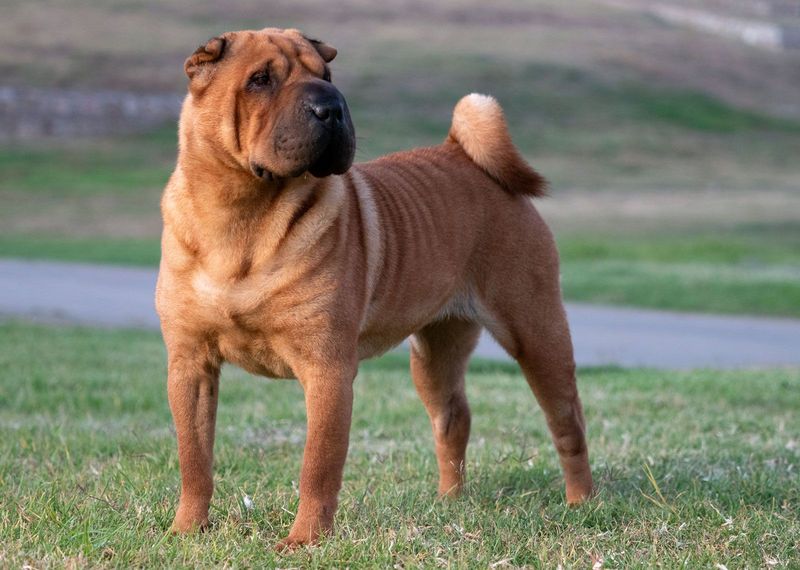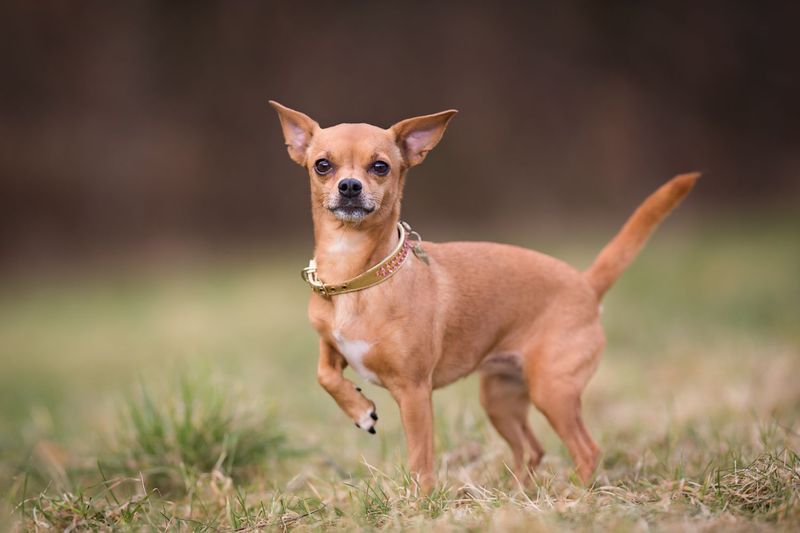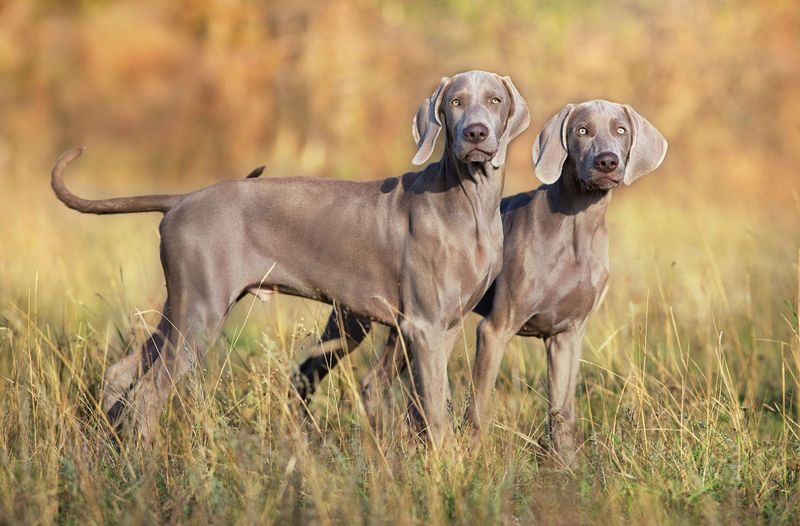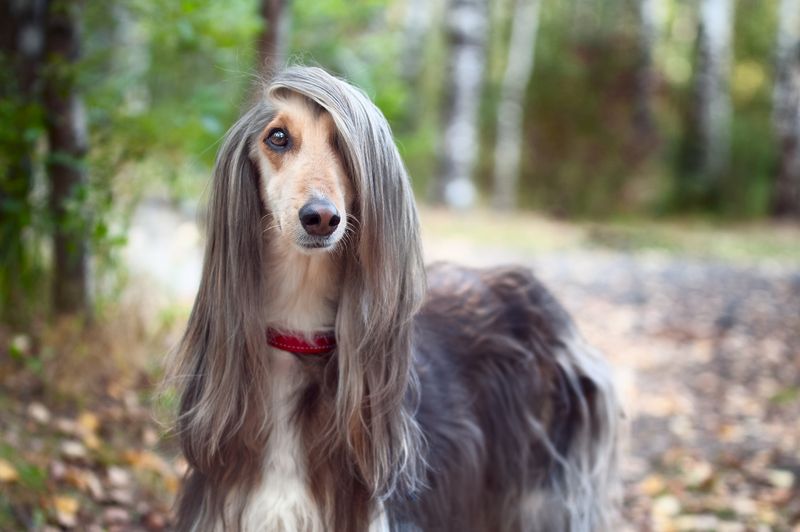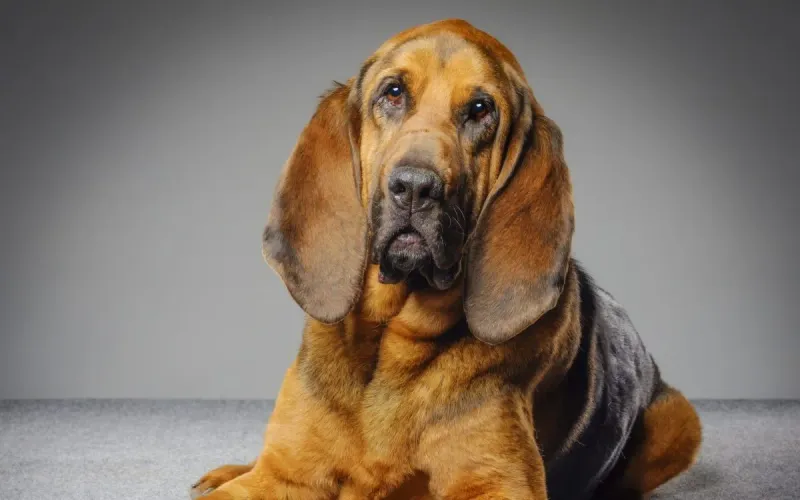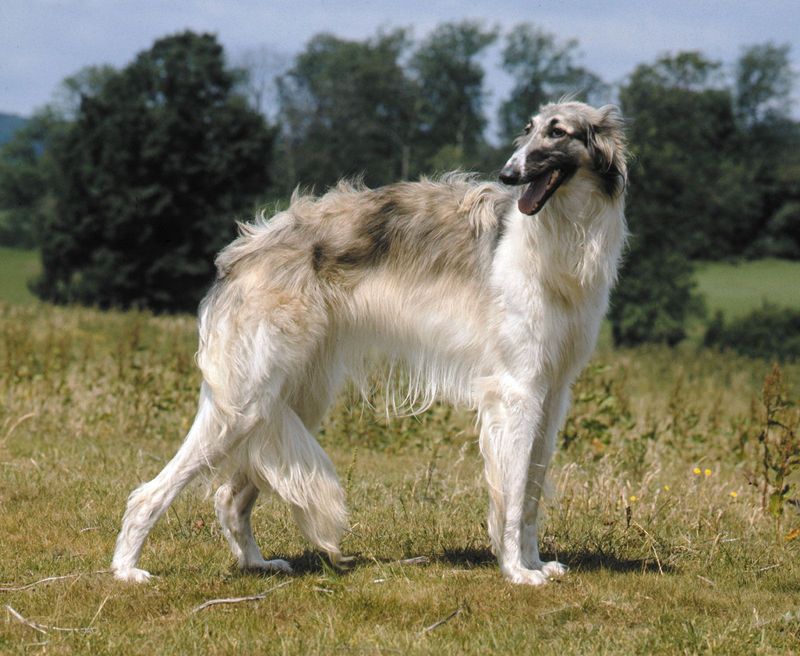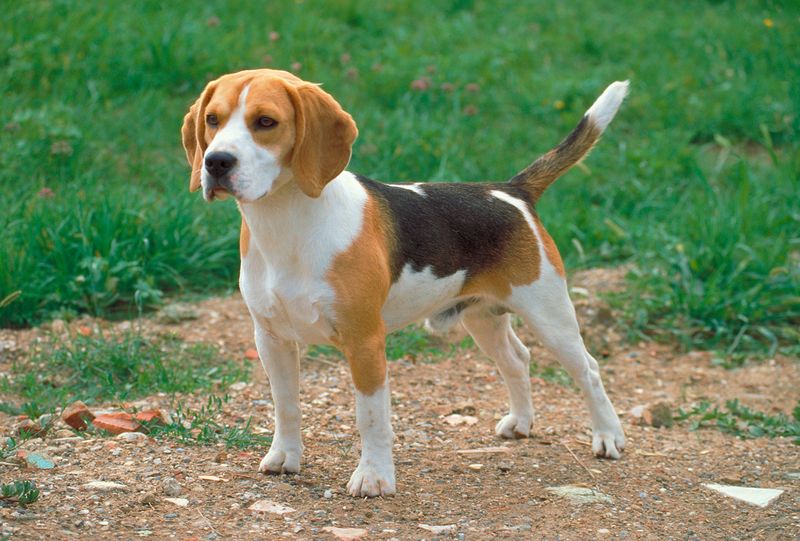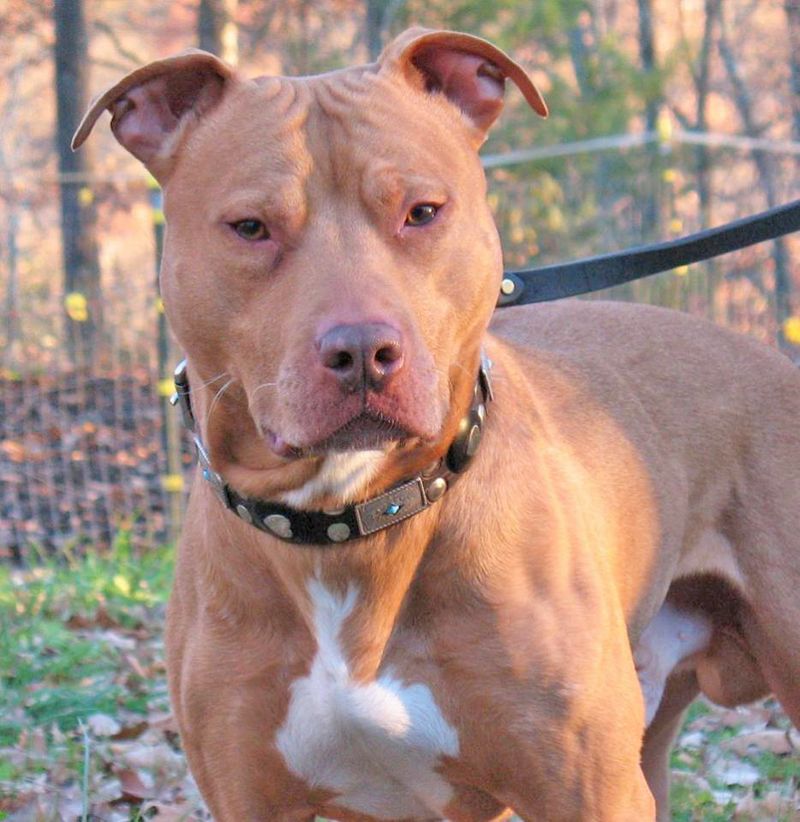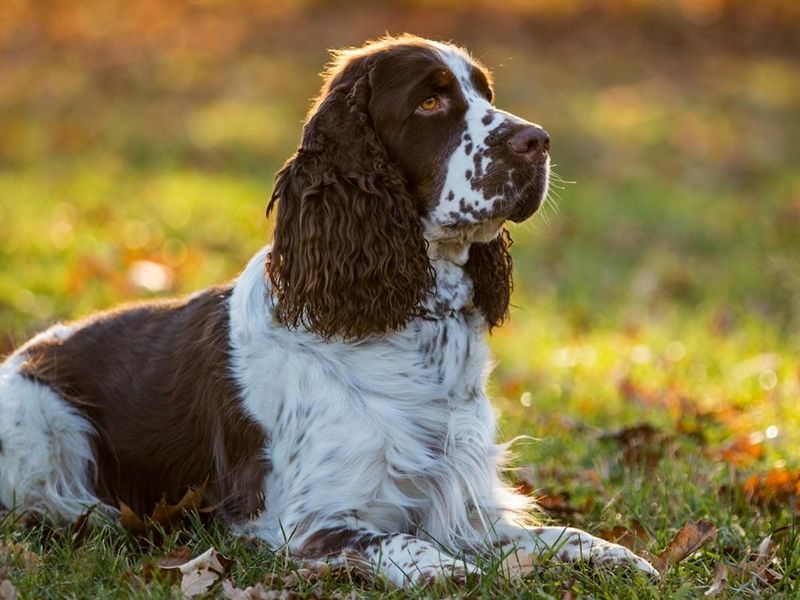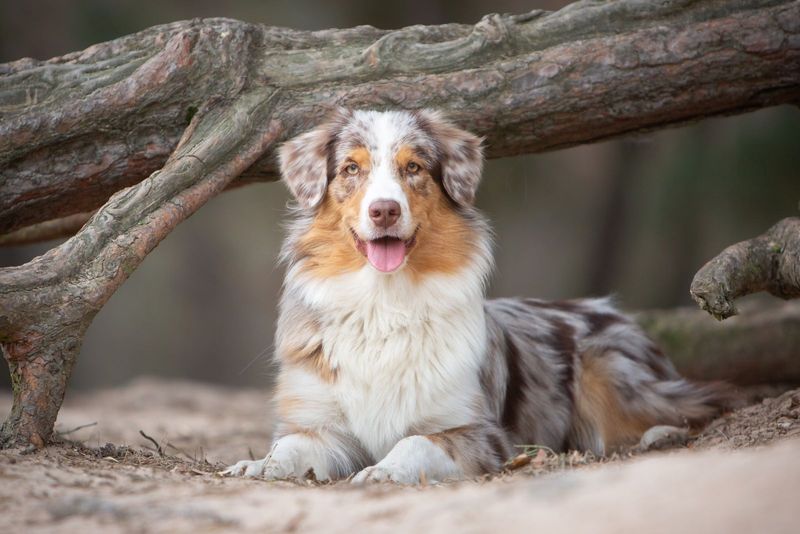Choosing the right dog breed to fit your lifestyle is crucial. While every dog is unique, some breeds might pose more challenges than others, especially for first-time owners.
This blog explores 20 dog breeds that are considered difficult to own due to various factors like temperament, exercise needs, and grooming requirements. This list aims to provide insights for potential dog owners to make informed decisions.
1. Chow Chow
Chow Chows are known for their lion-like appearance and aloof nature. Though visually striking, they are not the most sociable breed. Chow Chows can be fiercely independent and often exhibit a stubborn streak.
They require consistent training and socialization from an early age to prevent aggression. This breed’s loyalty often extends to one person, making them less adaptable in families. They also require regular grooming to maintain their thick coats, which can be time-consuming.
For those seeking a laid-back and easygoing companion, a Chow Chow might not be the best choice.
2. Dalmatian
Dalmatians are famous for their unique spotted coats and energetic personalities. However, this energy can be overwhelming for some owners. They require ample exercise daily to prevent destructive behavior.
Without structured activities, they can become bored and potentially unruly. Dalmatians are also known for their stubbornness, which can make training a challenge for inexperienced owners.
Additionally, they are prone to certain health issues, such as deafness, which may require special attention. If you’re not prepared for a high-energy lifestyle, a Dalmatian might not be the ideal pet.
3. Rottweiler
Rottweilers are robust and confident dogs, known for their protective nature. While they can be excellent guardians, they require experienced handling. Rottweilers need consistent training from a young age to ensure they become well-mannered adults.
Their natural guarding instinct can lead to territorial behavior if not properly managed. Socialization is key to preventing aggression towards strangers and other animals.
This breed also demands regular physical activity to keep them healthy and happy. For first-time dog owners, the Rottweiler might be a bit too challenging to handle.
4. Siberian Husky
Siberian Huskies are known for their striking appearance and high energy levels. Bred for endurance running, they require extensive daily exercise. Without it, they may become destructive.
Huskies are independent thinkers and can be escape artists, making them a challenging breed to train. Their strong prey drive also means they might not be suitable for homes with small pets.
In addition to their exercise needs, Huskies shed heavily and require regular grooming. If you’re unable to commit to a highly active and demanding breed, a Siberian Husky may not be a good fit.
5. Akita
Akitas are majestic dogs with a strong and independent streak. They are known for their loyalty and protective instincts, often bonding closely with their families. Despite these qualities, Akitas can be aloof and wary of strangers.
They require firm and consistent training from an experienced handler to manage their dominant tendencies. Akitas need early socialization to prevent aggressive behavior, especially towards other dogs.
Their thick coat also requires regular grooming to keep it in top condition. For those not prepared for a strong-willed and demanding companion, an Akita might not be the best choice.
6. Bulldog
Bulldogs are famous for their unique appearance and gentle nature. However, they come with several challenges. Bulldogs are prone to various health issues, particularly respiratory problems due to their brachycephalic structure.
This breed requires regular veterinary care to ensure a healthy life. Additionally, Bulldogs have low energy levels and can become overweight without proper diet management.
They also need daily cleaning of their skin folds to prevent infections. While Bulldogs can be wonderful companions, their health requirements can be demanding for some owners.
7. Dachshund
Dachshunds, with their distinctive long bodies and short legs, are charming yet challenging pets. They have a strong prey drive and love to dig, which can be problematic in a garden.
Their independent nature can make training a bit of a challenge, requiring patience and consistency. Dachshunds are also prone to back issues due to their unique body shape, necessitating careful handling and weight management.
While they are affectionate and loyal companions, potential owners should be prepared for their quirks and health concerns. For novice dog owners, a Dachshund might require more attention than anticipated.
8. Jack Russell Terrier
Jack Russell Terriers are lively and intelligent dogs, known for their boundless energy. Although small, they require significant mental and physical stimulation to thrive.
Without adequate exercise and engagement, they may develop destructive behaviors. Their intelligence can also make them quite stubborn, requiring patient and consistent training.
Additionally, their strong hunting instincts may not suit homes with smaller pets. While they can be delightful companions, Jack Russells are best suited for active individuals or families who can meet their high energy needs.
9. Cane Corso
The Cane Corso is a powerful and imposing breed, known for its protective nature. While they can make excellent guard dogs, they require an experienced owner to manage their strength and assertiveness.
Cane Corsos need consistent training and socialization to prevent aggressive tendencies. They are highly intelligent and respond well to structured activities.
This breed also demands regular exercise to keep them fit and content. While they can be loyal and loving family members, potential owners should be prepared for the responsibility of managing such a strong-willed dog.
10. Basenji
Basenjis are unique dogs known as the “barkless” breed, making them intriguing pets. However, they are not entirely silent and can vocalize in other ways. Basenjis are highly independent and can be challenging to train.
Their curious nature often leads them to explore, which requires a secure environment. They have a strong prey drive and may not get along with other small animals.
Additionally, Basenjis are known for their fastidious grooming habits but still require regular care to stay healthy. For those looking for a low-maintenance pet, a Basenji might not be the best fit.
11. Shar Pei
Shar Peis are known for their distinctive wrinkled appearance and loyal demeanor. Despite their unique look, they come with challenges. Shar Peis can be aloof and reserved, making them less social than other breeds.
They require early socialization and training to prevent them from becoming overly protective. Their skin folds need regular cleaning to avoid infections.
This breed is also prone to certain health issues, including skin and eye problems. While Shar Peis can be devoted companions, their grooming and health needs can be demanding for some owners.
12. Chihuahua
Chihuahuas, despite their small size, have big personalities. Known for their alertness and lively nature, they can be feisty and stubborn. This breed requires consistent training and socialization to prevent behavioral issues.
Chihuahuas can become overly attached to one person, which might lead to possessiveness. They are also known for their loud barking, which may not suit all living situations.
Due to their size, they can be fragile and require careful handling. While Chihuahuas can make entertaining companions, they demand more attention than one might expect from such a tiny breed.
13. Weimaraner
Weimaraners are athletic and energetic dogs, known for their striking silver-gray coats. They require extensive exercise to satisfy their high energy levels. Without regular physical activity, they can become restless and destructive.
Weimaraners are intelligent but can be stubborn, necessitating patient and consistent training. This breed is also prone to separation anxiety, making them unsuitable for owners who are away frequently.
Additionally, Weimaraners require regular grooming to maintain their sleek coats. For those not prepared for an active lifestyle, a Weimaraner may not be the ideal pet choice.
14. Afghan Hound
Afghan Hounds are known for their elegance and striking appearance. However, they are not for everyone. This breed requires regular grooming to maintain their luxurious coats, which can be time-consuming.
Afghan Hounds have a strong prey drive, making them unsuitable for homes with small pets. They are independent thinkers, often displaying aloofness and requiring patient training methods.
While they can be affectionate with family, Afghan Hounds are not the most obedient breed. Potential owners should be ready for the grooming and training challenges that come with this aristocratic dog.
15. Bloodhound
Bloodhounds are famous for their incredible sense of smell and tracking abilities. However, they come with their own set of challenges. Bloodhounds require ample space and exercise to thrive, as their energy levels are quite high.
They are strong-willed and can be difficult to train, necessitating patience and consistency. This breed’s droopy skin and long ears require regular cleaning to prevent infections.
While Bloodhounds can be gentle and affectionate, their unique needs may not suit every household. For those not prepared to manage their energy and grooming needs, a Bloodhound may not be ideal.
16. Borzoi
Borzois are graceful and elegant dogs, known for their calm demeanor. Despite their beauty, they are not the easiest breed to own. Borzois have a strong prey drive, making them unsuitable for homes with small animals.
This breed requires regular exercise to maintain their health and happiness, though they are generally calm indoors. Borzois also need consistent grooming to keep their coats in top condition.
They can be sensitive and independent, requiring gentle training methods. For those not ready to commit to their exercise and grooming needs, a Borzoi might not be the best fit.
17. Beagle
Beagles are known for their friendly nature and keen sense of smell. However, their curiosity can sometimes get them into trouble. Beagles require regular exercise to prevent boredom and destructive behavior.
This breed can be stubborn, making training a challenge for inexperienced owners. Beagles are also prone to howl, which may not be suitable for all living situations.
Additionally, they require regular grooming to maintain their coat. While Beagles can be great family pets, their energy and vocal tendencies might be overwhelming for some.
18. American Pit Bull Terrier
American Pit Bull Terriers are strong and confident dogs, often misunderstood due to their reputation. While they can be loving and loyal companions, they require experienced handling.
This breed needs consistent training and socialization to prevent behavioral issues. Their strength and energetic nature demand regular exercise to keep them happy and healthy.
Additionally, Pit Bulls may not suit homes with other pets due to their prey drive. While they can be devoted family members, they are best suited for owners prepared to meet their training and exercise needs.
19. Cocker Spaniel
Cocker Spaniels are known for their friendly nature and beautiful coats. However, they come with grooming and health challenges. This breed requires regular grooming to maintain their coats, which can be time-consuming.
Cocker Spaniels are also prone to ear infections, necessitating regular cleaning. They can be sensitive and may develop separation anxiety if left alone for long periods.
While they are generally good with families, their grooming and health needs can be demanding. For those not prepared to commit to their care requirements, a Cocker Spaniel might not be the best choice.
20. Australian Shepherd
Australian Shepherds are intelligent and agile dogs, known for their herding abilities. However, their high energy levels can be challenging for some owners. They require regular exercise and mental stimulation to prevent boredom and destructive behavior.
This breed is highly trainable but needs consistent handling to manage their exuberance. Australian Shepherds can also be wary of strangers, requiring early socialization.
Additionally, they need regular grooming to maintain their coats. While they can be excellent companions for active individuals, their needs may be overwhelming for those not prepared for an energetic lifestyle.
